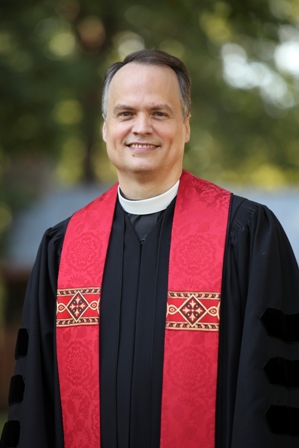 What’s the Least I Can Believe and Still Be a Christian? is both an important question and the title of a popular new book by Martin Thielen. According to Bob Smietana’s March 13 article in The Tennessean the book was released in January and “has become a surprise hit, with a second printing on the way.”
What’s the Least I Can Believe and Still Be a Christian? is both an important question and the title of a popular new book by Martin Thielen. According to Bob Smietana’s March 13 article in The Tennessean the book was released in January and “has become a surprise hit, with a second printing on the way.”
Thielen is a former Southern Baptist who left the denomination when it took a fundamentalist turn. He is now an ordained United Methodist pastor who serves as the Pastor of Lebanon First United Methodist Church in Lebanon, TN. According to Smietana:
While many mainline churches are declining, this one isn’t. Membership at the average United Methodist church dropped by 1.2 percent in the past decade — from 232 to 228. Average worship attendance dropped about 5.2 percent, from 98 worshippers to 93. First United Methodist added about 800 members in that same time frame. Worship attendance grew from 300 to 640.
In July, Thielen will assume a new role as Senior Pastor of the 7,600-member Brentwood United Methodist Church, which is the largest Methodist church in Tennessee. For now, most of the focus from outside of his parish centers on his book, which overviews the basic message that helped his current parish double in size.
In January, Thielen shared how this question influenced his ministry and provided an outline of the book for the Huffington Post. Three remarks from that article warrant attention:
In short, Christians don’t need to believe in closed-minded faith. . .
On the other hand, there are things Christians do need to believe, which is the focus of part two of my book. They need to believe in Jesus — his life, teachings, example, death and resurrection. . .
I want people . . . to know that a viable alternative exists to arrogant, judgmental, closed-minded religion. I also wrote the book for moderate and mainline churches. We in the moderate/mainline tradition have a compelling faith story to tell.
So What?
Have you ever considered the question? If not, I encourage you to do so. Try making a list of what you feel one must believe in order to be classified as a Christian. Then try the same exercise again with a small group from your church. If you engage in the group exercise I encourage you to limit each group to no more than five people and make a rule that everyone in the group must agree that the item is essential for it to make the list (if even one person does not feel it is essential, keep it off the list unless the rest of the group genuinely persuades that person it does in fact belong). I have found the exercise works well with groups who have studied together for some time and those who have just met. Most groups are surprised how long it takes to craft the list and many continue the conversation well beyond the classroom.